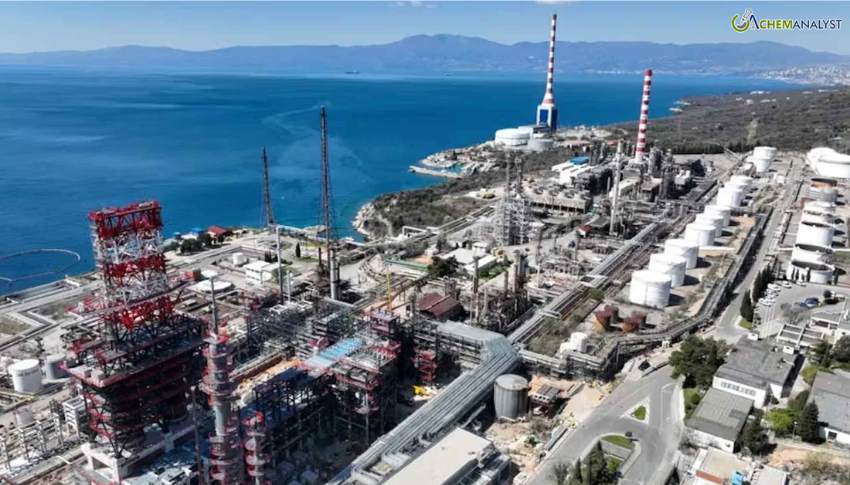Welcome To ChemAnalyst

Croatia's INA, a member of MOL Group, has successfully completed a pilot project at its Rijeka refinery, confirming its capability to produce Sustainable Aviation Fuel (SAF) and renewable diesel using existing infrastructure. This achievement marks a significant step towards decarbonizing refinery operations and meeting future renewable energy targets.
INA Industrija Nafte DD, a prominent member of the MOL Group, has announced a major breakthrough in its sustainability initiatives, confirming the readiness of its 90,000-b/d Rijeka refinery for the production of Sustainable Aviation Fuel (SAF) and renewable diesel. A successful pilot project, conducted in May, demonstrated the refinery's ability to co-process biogenic feedstock with conventional crude oil using existing hydrocracking technology, paving the way for a more sustainable future in the aviation and transport sectors.
The pilot, conducted from May 5 to 13, 2025, involved co-processing 1,000 tonnes of 5% palm oil mill effluent (POME) biogenic feedstock with conventional crude oil. This innovative approach took place at the Rijeka refinery's existing hydrocracking unit, successfully yielding both SAF and hydrotreated vegetable oil (HVO), commonly known as renewable diesel. This achievement underscores INA's commitment to leveraging current infrastructure for greener energy production.
The company aims to complete all preparatory activities and begin supplying SAF to the market from the Rijeka refinery by 2029.
Developed over an intensive eight-month period, the pilot program was a collaborative effort with Chevron Lummus Global (CLG), the technology licensor for the hydrocracking unit. The project necessitated specific modifications to the existing equipment, including the integration of specialized filters. These enhancements were crucial for increasing capacities and ensuring the controlled handling of the specialty biogenic feedstock within the refinery's hydrocracking and vacuum distillation units.
The entire pilot process was independently certified by Bureau Veritas d.o.o., a testament to the project's adherence to stringent standards. The independent testing of the resulting SAF and HVO volumes conclusively confirmed their compliance with ISCC System GmbH’s International Sustainability Carbon Certification (ISCC) standards for sustainable biofuels. This crucial certification encompasses both the ISCC European Union (EU) and ISCC Carbon Offsetting and Reduction Scheme for International Aviation (CORSIA) PLUS co-processing certifications, effectively clearing the path for INA to proceed with its ambitious plans for ongoing SAF production.
In parallel with these developments, the Rijeka refinery is also undertaking a green hydrogen project. This entails building an 11-MW photovoltaic (PV) power plant and a 10-MW proton exchange membrane electrolyzer (PEMEL), aimed at generating 1,500 kg of green hydrogen annually using entirely renewable electricity. The required clean power for hydrogen production will come from the PV facility and green power purchase agreements. Mechanical completion for this green hydrogen project is slated for year-end 2026, with full production capacity expected by 2027.
We use cookies to deliver the best possible experience on our website. To learn more, visit our Privacy Policy. By continuing to use this site or by closing this box, you consent to our use of cookies. More info.
